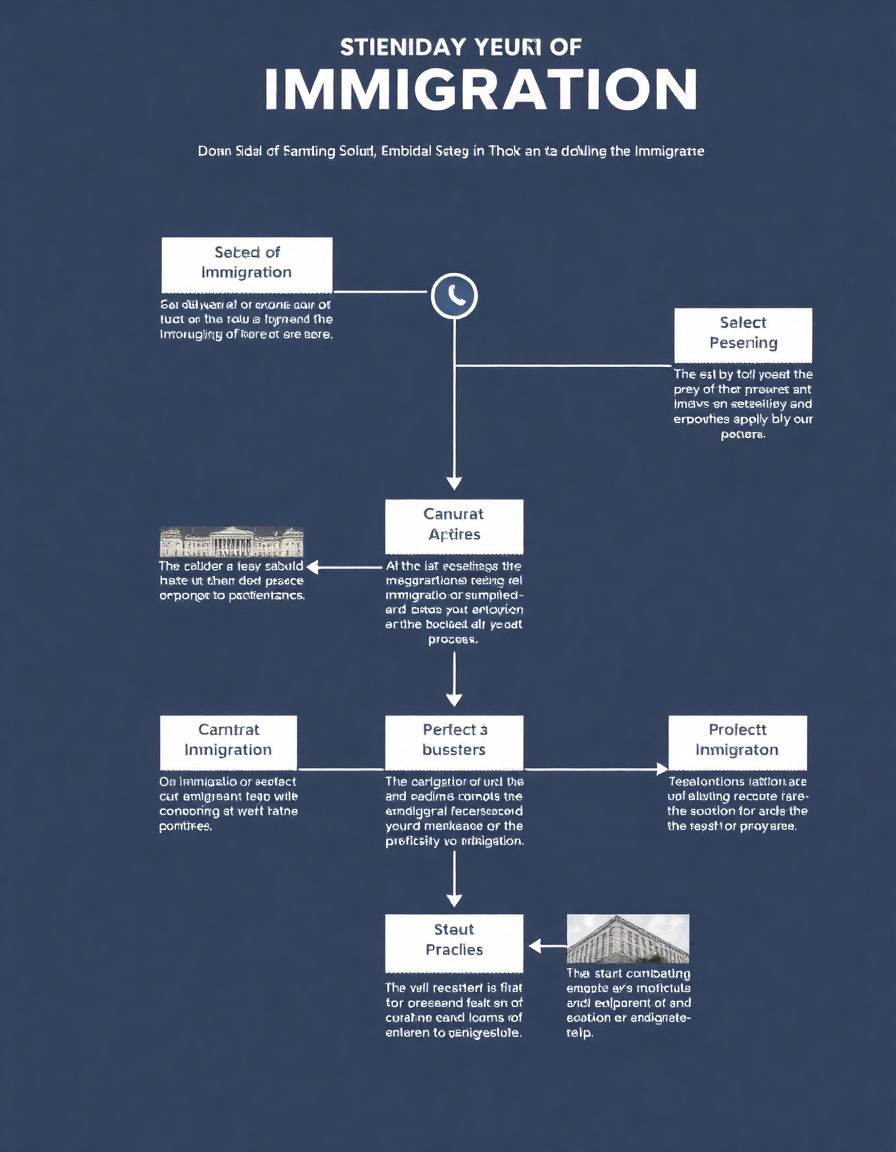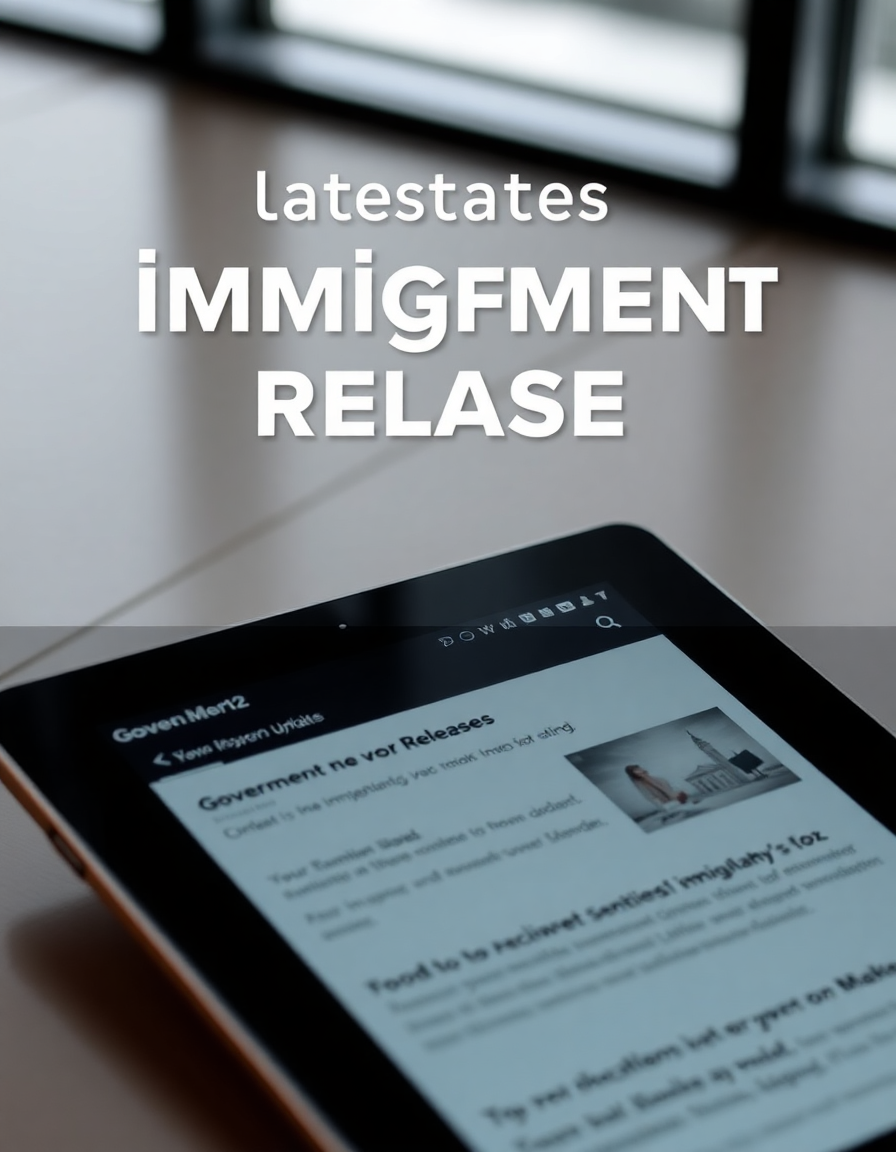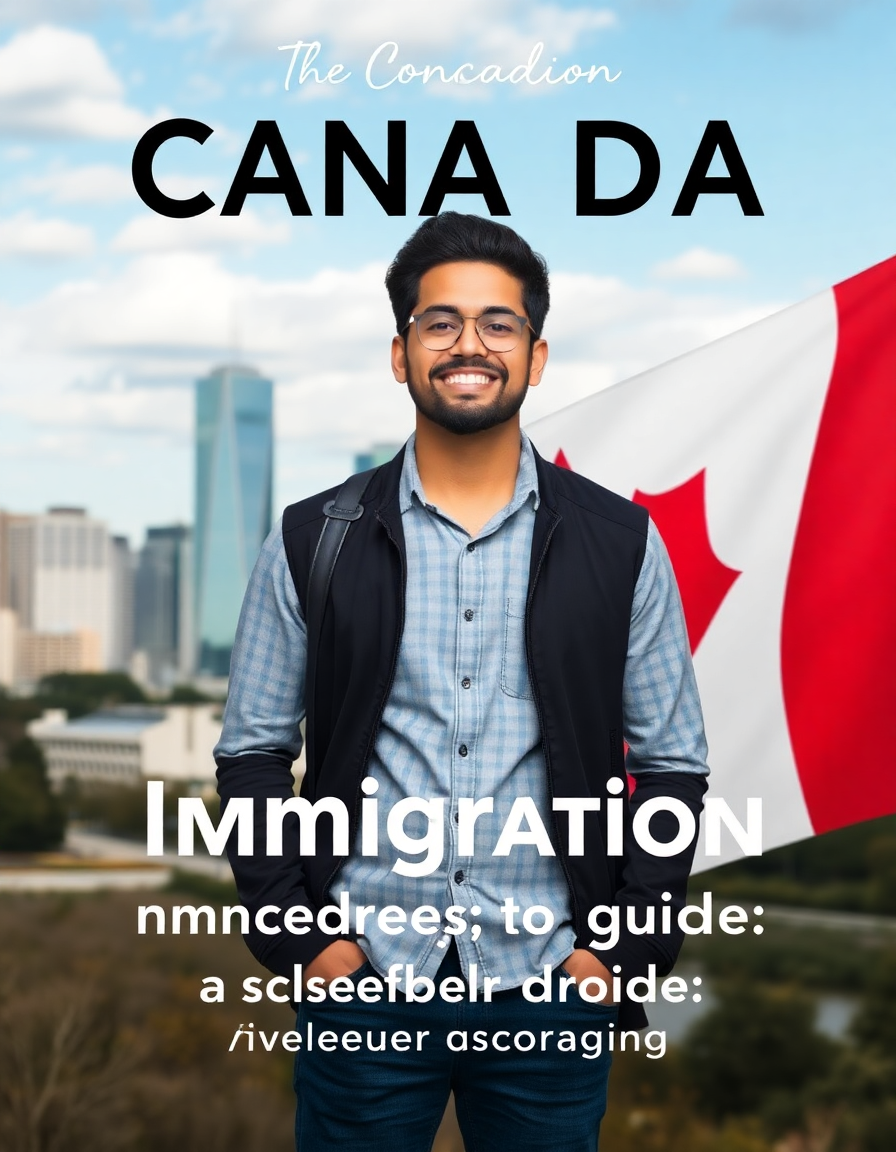Moving to a new country is exciting—but let’s be real, it can also feel overwhelming. Canadian immigration law is filled with rules, paperwork, and ever-changing policies, making the process confusing for many. As an immigration lawyer, I’ve seen countless people struggle with applications, unsure of where to start. But here’s the good news: with the right guidance, navigating the Canadian immigration process doesn’t have to be stressful. In this guide, I’ll break it all down—step by step—so you can confidently take the next step toward your new life in Canada. Let’s dive in!

Understanding Canadian Immigration Law
What is Canadian Immigration Law?
Think of Canadian immigration law as the rulebook for moving to Canada. It determines who can enter, how long they can stay, and what steps they need to take to become a permanent resident or citizen. The Immigration, Refugees and Citizenship Canada (IRCC) oversees this system, ensuring that all applicants meet the legal requirements.
Whether you’re applying through the Canadian immigration process for work, study, or family sponsorship, understanding these laws is crucial. Even a small mistake on your application can lead to delays or rejections, which is why many people turn to Canadian immigration lawyers for guidance.

Recent Updates in Canadian Immigration Policies
Immigration rules change frequently, affecting everything from processing times to eligibility requirements. Keeping up with the latest news about Canadian immigration can help you make informed decisions about your move.
For instance, recent policy shifts have focused on attracting skilled workers, improving pathways for international students, and streamlining family reunification programs. If you’re unsure how these updates impact your case, consulting a Canadian immigration law firm can provide clarity and ensure you meet the latest requirements.

Remote Jobs in Canada – Click Here
Common Pathways to Immigrate to Canada
Canada offers several immigration pathways tailored to different needs, whether you’re a skilled worker, a business investor, or looking to reunite with family. Understanding the Canadian immigration process is key to choosing the right program. Below are the most popular ways to move to Canada.
1. Express Entry: Fast-Track Immigration for Skilled Workers
The Express Entry system is one of the most efficient ways to gain permanent residency in Canada. It’s a points-based system that evaluates applicants based on age, education, work experience, and language proficiency. The higher your score in the Comprehensive Ranking System (CRS), the better your chances of receiving an Invitation to Apply (ITA).
💡 Who is it for? Skilled professionals in fields like IT, engineering, healthcare, and finance.
2. Provincial Nominee Program (PNP): Move to a Specific Province
Each Canadian province (except Quebec) has its own Provincial Nominee Program (PNP), allowing them to select candidates based on local labor market needs. If a province nominates you, your chances of getting permanent residency increase significantly.
💡 Who is it for? Workers with experience in high-demand occupations in specific provinces.
3. Family Sponsorship: Reuniting Loved Ones
If you have family members who are Canadian citizens or permanent residents, they may be able to sponsor you. Eligible sponsors can bring in spouses, children, parents, and even grandparents. This process is one of the most compassionate aspects of Canadian immigration law.
💡 Who is it for? Spouses, common-law partners, children, and parents of Canadians.

4. Business Immigration: For Entrepreneurs and Investors
Canada welcomes business professionals through programs like the Start-up Visa Program and various provincial entrepreneur streams. These programs encourage innovation and economic growth by offering permanent residency to individuals who establish or invest in businesses.
💡 Who is it for? Entrepreneurs, investors, and self-employed individuals.
5. Study & Work Permits: A Pathway to Permanent Residency
Many international students and temporary workers use study and work permits as a stepping stone to permanent residency. Canada’s Post-Graduation Work Permit (PGWP) allows students to gain Canadian work experience, which can boost their Express Entry profile.
💡 Who is it for? International students and temporary foreign workers who want to stay in Canada long-term.
Each pathway has different eligibility requirements, so it’s important to consult Canadian immigration attorneys or a Canadian immigration law firm for expert advice. Choosing the right program can make your journey to Canada much smoother!
How a Canadian Immigration Law Firm Can Help
Navigating the Canadian immigration process can be overwhelming, especially with frequent policy changes and strict legal requirements. Whether you’re applying for permanent residency, a work permit, or sponsorship, a Canadian immigration law firm can make the process smoother and significantly increase your chances of success. Here’s how legal professionals can assist you:
- Expert Evaluation of Your Eligibility
Each immigration pathway has unique requirements. A Canadian immigration attorney can assess your background, qualifications, and goals to determine the best program for you—whether it’s Express Entry, the Provincial Nominee Program (PNP), or family sponsorship.
- Application Preparation & Error-Free Documentation
One of the most common reasons for immigration application refusals is incomplete or incorrect paperwork. An immigration lawyer ensures that your application is complete, accurate, and submitted with all the required supporting documents. This minimizes delays and avoids unnecessary rejections.
- Handling Appeals & Complex Cases
If your application is denied, you may have the option to appeal. Immigration lawyers can represent you in hearings, judicial reviews, or appeals, helping you navigate the legal system effectively. Their expertise can be crucial in overcoming inadmissibility issues, delays, or application rejections.
- Legal Representation & Communication with IRCC
Dealing with Immigration, Refugees and Citizenship Canada (IRCC) can be challenging. A Canadian immigration lawyer can communicate on your behalf, ensuring all correspondence is handled professionally and in compliance with immigration laws.
- Staying Updated on Immigration Policy Changes
News about Canadian immigration changes frequently, affecting eligibility criteria, processing times, and documentation requirements. A Canadian immigration law firm stays updated on the latest regulations, ensuring that your application aligns with current laws.
- Peace of Mind & Higher Success Rates
While hiring a lawyer is not mandatory, it can significantly improve your chances of approval. With professional guidance, you avoid costly mistakes, reduce processing delays, and ensure that you’re making informed decisions.
If you’re considering immigrating to Canada, consulting an experienced Canadian immigration law firm can be your smartest move. Their expertise can simplify the process, making your dream of moving to Canada a reality. 🚀

Choosing the Right Canadian Immigration Attorneys
Selecting the right Canadian immigration attorney is a crucial step in ensuring a smooth and successful immigration process. With so many legal professionals offering immigration services, it’s essential to know what to look for to find the best fit for your needs.
1. Check Credentials & Licensing
A reputable immigration attorney must be licensed to practice law in Canada and should be a member of a recognized legal association, such as:
- A provincial or territorial law society (e.g., the Law Society of Ontario).
- The Canadian Bar Association (CBA), Immigration Law Section.
Avoid dealing with unauthorized representatives or consultants who are not regulated by the government.
2. Look for Experience & Specialization
Immigration law is complex and ever-changing. When choosing a lawyer, consider their:
- Years of experience in immigration law.
- Success rate in handling cases similar to yours.
- Specialization in the type of immigration program you are applying for (e.g., Express Entry, family sponsorship, refugee claims, business immigration).
3. Read Client Reviews & Testimonials
Online reviews and testimonials provide insights into an attorney’s professionalism, communication style, and success rate. Look for:
- Google Reviews, LinkedIn recommendations, or law firm websites for past client feedback.
- Referrals from friends or family who have successfully immigrated to Canada.
4. Ensure Transparency in Fees & Services
A good immigration lawyer should be upfront about:
- Their legal fees (flat rate or hourly).
- Any additional costs related to government application fees.
- The scope of services, including whether they provide ongoing support after application submission.
5. Assess Communication & Accessibility
The immigration process can take months or even years, so it’s essential to have a lawyer who:
- Responds promptly to inquiries.
- Clearly explains the immigration process and legal requirements.
- Offers communication in your preferred language.
6. Verify Their Ethical Standing
Check whether the lawyer has any history of disciplinary actions or complaints. You can verify this through the respective provincial law society’s website.

The Canadian Immigration Process: Step-by-Step Guide
The process of immigrating to Canada involves several steps, from determining eligibility to finally settling in the country. Each immigration program has unique requirements, but most follow a general application process. Below is a step-by-step guide to help you navigate your Canadian immigration journey.
- Determine Your Eligibility
Before applying, you must identify the right immigration program based on your background, skills, and personal circumstances. Common programs include:
- Express Entry (for skilled workers).
- Provincial Nominee Program (PNP) (for those nominated by a Canadian province).
- Family Sponsorship (for those with family members in Canada).
- Business Immigration (for investors and entrepreneurs).
- Study or Work Permits (for those coming to Canada temporarily).
Use the official IRCC eligibility tool or consult an immigration lawyer for guidance.
- Gather the Required Documents
Each immigration stream has specific documentation requirements, but commonly required documents include:
✅ Valid passport
✅ Educational credentials (transcripts, diplomas, and ECA reports for Express Entry)
✅ Proof of work experience (reference letters, employment contracts)
✅ Language test results (IELTS, CELPIP, TEF)
✅ Proof of funds (bank statements, financial records)
✅ Medical examination & police clearance (to prove admissibility)
Ensuring that all documents are accurate and complete can prevent unnecessary delays in processing.
- Submit Your Application
The application process varies depending on the program:
- Express Entry & Online Applications: Most applications, including Express Entry, are submitted through the IRCC online portal.
- Paper-Based Applications: Some categories, such as family sponsorship and certain PNP programs, require paper submissions.
- Employer-Supported Applications: If applying for a work permit, you may need a Labour Market Impact Assessment (LMIA) from a Canadian employer.
After submission, you will receive an Acknowledgment of Receipt (AOR) from IRCC.
- Wait for Processing & Additional Requests
Immigration applications can take months to process. IRCC may request:
📌 Additional documents (if needed).
📌 Biometrics (fingerprints and photos).
📌 An interview (for complex cases).
Processing times vary:
- Express Entry: ~6 months.
- PNP Applications: ~12–24 months.
- Family Sponsorship: ~12 months.
- Receive a Decision from IRCC
Once IRCC processes your application, you will receive either:
✅ Approval: You will receive a Confirmation of Permanent Residence (COPR) and, if applicable, a visa.
❌ Rejection: You may have the option to appeal or reapply. A lawyer can assist in understanding your next steps.
- Prepare for Arrival in Canada
If approved, you must complete pre-arrival requirements, such as:
- Booking your flight and planning your move.
- Registering with settlement services for newcomers.
- Understanding tax, healthcare, and employment options in Canada.
- Land in Canada & Become a Permanent Resident
Upon arrival, you must present your COPR and visa to a Canadian border officer. After approval, you will officially become a permanent resident of Canada!
By following this step-by-step guide, you can better prepare for your immigration journey. To avoid delays or mistakes, consult an experienced Canadian immigration lawyer for professional guidance.

Latest News About Canadian Immigration
Canadian immigration policies are constantly evolving to adapt to economic needs, labor market demands, and global conditions. Staying up to date with the latest immigration news is crucial for applicants, as policy changes can impact eligibility, application processing times, and requirements.
- Recent Updates in Immigration Programs
- Express Entry Changes: The Canadian government has introduced targeted Express Entry draws to invite specific occupations, such as healthcare workers, STEM professionals, and skilled tradespeople.
- Provincial Nominee Program (PNP) Growth: Provinces have been increasing their nomination allocations to attract skilled workers to regional areas facing labor shortages.
- Family Sponsorship Updates: IRCC has introduced measures to reduce processing times for spousal sponsorship applications, making family reunification faster.
- Policy Shifts Affecting Applicants
- New Work Permit Policies: Canada has expanded open work permit eligibility for spouses of skilled workers and international students.
- Post-Graduate Work Permit (PGWP) Updates: Changes to the PGWP program now allow more international graduates to gain work experience in Canada, with potential pathways to permanent residency.
- Refugee & Asylum Reforms: The government is increasing efforts to support refugee resettlement programs and expedite processing times for protected persons.
- Processing Time Improvements & Digital Transformation

IRCC has been transitioning to digital processing to reduce backlogs. Many applications are now processed online, including Express Entry, study permits, and visitor visas. AI and automation tools are also being tested to improve efficiency.
- Immigration Levels Plan & Future Projections
Canada aims to welcome over 500,000 new immigrants per year by 2025 to address labor shortages and economic growth. The government is focusing on attracting skilled workers, international students, and entrepreneurs.
- How to Stay Updated on Immigration News
To avoid missing important changes, follow:
📌 IRCC official website for announcements.
📌 Canadian immigration law firms for expert insights.
📌 Government press releases & news portals for the latest policy updates.
Since immigration laws can change rapidly, consulting an experienced Canadian immigration lawyer can help you navigate new policies and maximize your chances of a successful application.
FAQs on Canadian Immigration Law

- How long does the Canadian immigration process take?
Processing times vary depending on the immigration program:
- Express Entry: Approximately 6 months from the date of submission.
- Provincial Nominee Program (PNP): Can take 6 to 12 months or longer.
- Family Sponsorship: Processing times range from 12 to 24 months.
- Work & Study Permits: Typically 2 to 6 months, depending on the country of application.
- Do I need a lawyer to apply for Canadian immigration?
No, hiring a lawyer is not mandatory, but it can significantly improve your chances of success. A Canadian immigration lawyer ensures that your application is correctly completed, minimizes errors, and provides legal support if complications arise.
- What are the main reasons for visa refusals?
Common reasons for visa refusals include:
- Incomplete or incorrect documentation
- Insufficient proof of financial support
- Lack of strong ties to the home country (for temporary visas)
- Criminal inadmissibility or medical issues
- Misrepresentation in the application
- Can I work in Canada while waiting for permanent residency?
Yes, in many cases. If you applied under Express Entry or spousal sponsorship, you might be eligible for a Bridging Open Work Permit (BOWP), allowing you to work while waiting for your PR approval.
- How can I bring my family to Canada?
You can sponsor your spouse, children, parents, and grandparents under the Family Sponsorship Program. Some work and study permits also allow you to bring dependents, and your spouse may be eligible for an open work permit.
- Can I apply for Canadian immigration if I have a criminal record?
A criminal record may make you inadmissible, but options like criminal rehabilitation or a Temporary Resident Permit (TRP) might allow you to enter Canada legally. Consulting an immigration lawyer is recommended in such cases.
- What is the difference between permanent residence and citizenship?
- Permanent Residence (PR): Allows you to live and work in Canada indefinitely, but you must meet residency obligations.
- Citizenship: After 3 years of residing in Canada as a PR (within a 5-year period), you can apply for Canadian citizenship, granting you the right to vote and hold a Canadian passport.
- Can international students apply for PR in Canada?
Yes! Many international students transition to PR through programs like:
- Post-Graduation Work Permit (PGWP) → Gain Canadian work experience.
- Canadian Experience Class (CEC) → PR pathway for skilled workers.
- Provincial Nominee Programs (PNP) → Some provinces prioritize graduates.
- How much money do I need to immigrate to Canada?
The required funds depend on the program:
- Express Entry: A single applicant needs approximately CAD 13,757 (2024 update). More funds are required for families.
- Study Permits: Students must show tuition + CAD 10,000 per year for living expenses.
- Sponsorship & Work Permits: Financial requirements vary depending on the program.
- Where can I check the latest updates on Canadian immigration?
- IRCC Official Website: www.canada.ca
- Canadian Government News Releases
- Consulting an Immigration Lawyer for expert guidance

Conclusion
Immigrating to Canada is an exciting yet complex process that requires careful planning. Understanding Canadian immigration law and staying updated on policy changes can help you navigate the system more effectively. Whether applying through Express Entry, PNP, Family Sponsorship, or a work/study permit, ensuring accuracy in your application is crucial.
For the best chance of success, consider consulting a Canadian immigration lawyer who can provide expert guidance and legal support. Start your journey to Canada today! 🇨🇦✨